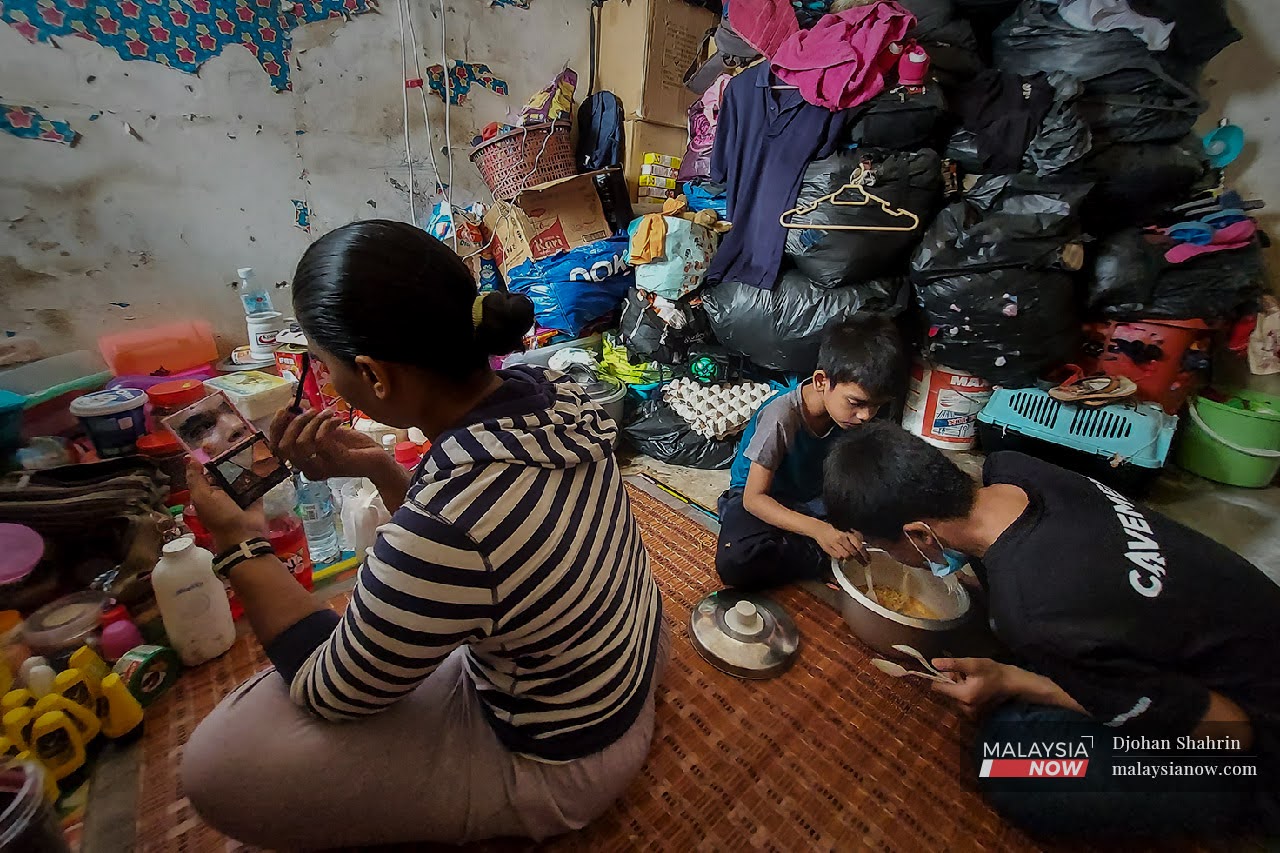Lack of information slows vaccine push among the urban poor and homeless
They only know that they want to be jabbed and have no idea or means by which to go about registering for vaccination.
Just In
For a decade, Rubi and her family have lived in a small rented room in Lorong Haji Taib in Chow Kit Road, one of Kuala Lumpur’s most notorious red-light districts.
At one point, she was living rough in Semenyih, Selangor, sleeping on a piece of cardboard at night. The room in Lorong Haji Taib, while far from luxurious, is a step up from living on the streets – though not by much.
There are four of them squeezed into the room: herself, her husband and their two children. Her husband works as a security guard while Rubi takes care of the children.
Apart from themselves, the room also houses their belongings which are stacked high in piles against the walls, taking up precious space and threatening an avalanche at any time.
An unpleasant fishy smell wafts in from outside but there is little they can do about it.
The living area, meanwhile, has been partitioned off and rented out to other tenants.

Surrounded by drug addict neighbours, even the children are aware of how easy it is to slip into the habit although under their mother’s watchful eye they have steered well clear of it.
There is no kitchen in the cramped space – Rubi makes do with a rice cooker which, like everything else, is placed on the floor.
The family lives mostly on instant noodles which is the most they can afford, with any additional dishes bought from outside.
Filled as it is with drug users and sex workers, Rubi knows that theirs is a dodgy part of town and she worries about how to keep her children safe.
“They go to school at Sekolah Bimbingan Jalinan Kasih,” she said when met by MalaysiaNow in their small room. “Every day, they walk to school. If you ask me, I’m dying to move out from here.”
Another danger of living in such close quarters is the risk of contracting Covid-19. While the national immunisation programme is underway across the country, many of the homeless and hardcore poor in the capital city have yet to be jabbed.

Rubi has the MySejahtera app but only uses it to register before entering shops and other business premises.
“My friends and I in Chow Kit have heard of vaccines for the homeless but we do not know how to get them,” she said, referring to the programme under the federal territories ministry.
Other homeless people met by MalaysiaNow said they had heard of the national immunisation programme which they knew was underway.
They were also aware of the vaccination programme for the homeless but did not know how to register and had not been approached by anyone in authority.
Two Chinese men, when met in the Chow Kit area, said they wanted to be vaccinated but had no phone to enrol through MySejahtera.
They knew of the massive vaccination centre at the nearby World Trade Centre but did not know how to register.
Another homeless woman who called herself Cik Wan was more fortunate – not only did she possess a phone, she also knew how to register for the national vaccination programme through MySejahtera.

“I registered through MySejahtera early this month,” she told MalaysiaNow, adding that she was still waiting for an appointment date.
For now, Cik Wan is staying with her three children in a motel room for which she pays daily rates.
She said she had heard of the programme for the homeless but did not know how to register for it.
“None of my friends have gone for it either,” she said. “If they had, they would have told us about it.”
Back in Lorong Haji Taib, when asked if she had any concerns about the vaccines, Rubi said she was confident in what the people had been told by the authorities.
“I have heard from those who were vaccinated about how they suffered side effects such as fever, and were unwell.
“But I trust in what the doctor has told me,” she said.
Subscribe to our newsletter
To be updated with all the latest news and analyses daily.
Most Read
No articles found.



